Crispin Glover Wasn’t In Back To The Future II Because Of His Extremist Political Views
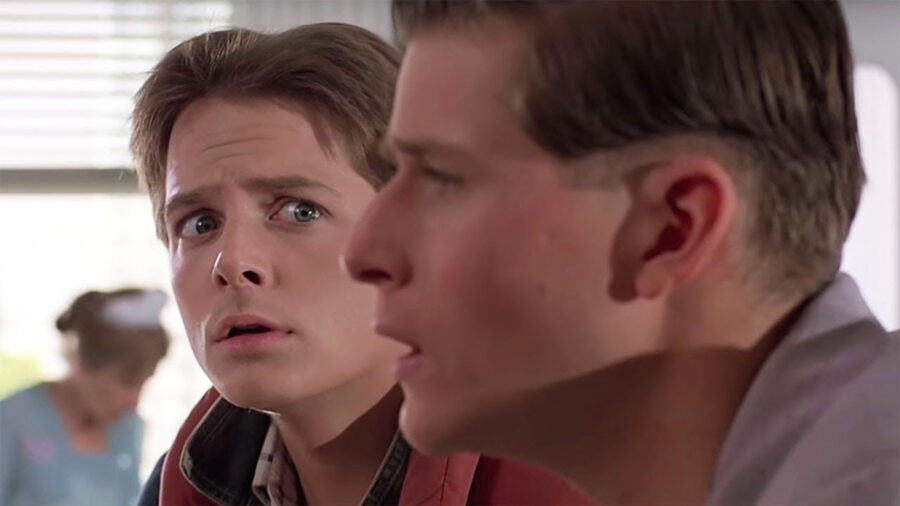
In 1985, Crispin Glover played Michael J. Fox’s dorky dad, George McFly in Back to the Future. You may remember him in the 1989 sequel, but you’d be wrong.
McFly’s face does appear in Back to the Future II, but that’s only because Bob Gale and Robert Zemeckis used it (alongside an actor in prosthetics) without Glover’s permission. Crispin won a landmark court case over the infringement, but the story behind why Glover himself didn’t appear in the film remained vague for years.
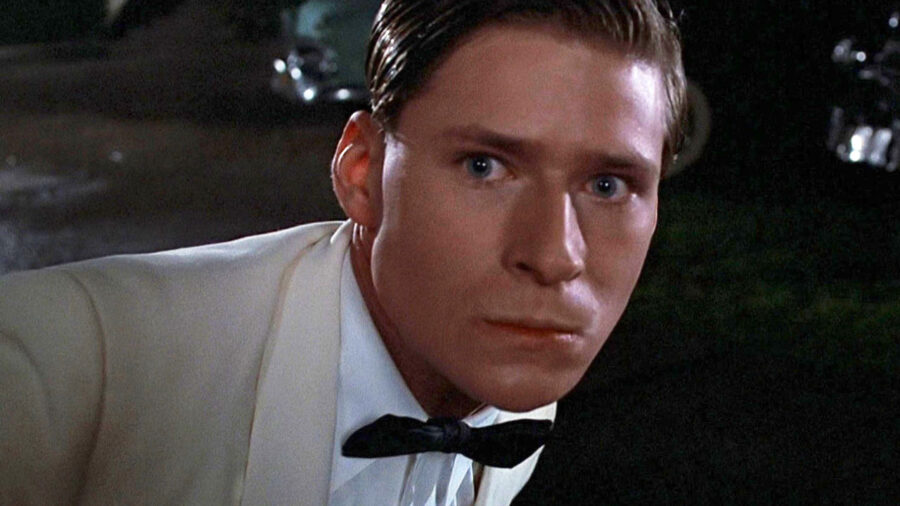
Back to the Future producer Bob Gale has held it that Glover exited the franchise because of unsuccessful negotiations to have his salary raised, but Glover himself has been fairly silent on the topic. But in 2011, Crispin Glover finally spoke up and explained things from his point of view.
“I think if the characters have money [in the updated timeline at the end of the film] if our characters are rich, it’s a bad message.”
Crispin Glover
At the tail end of a lengthy interview with The A.V. Club about his independent, avant-garde filmmaking and multimedia shows, Glover explained his side of the story. As Glover explains it, salary for the sequel was a part of his decision, but the root of the issue goes back much further.
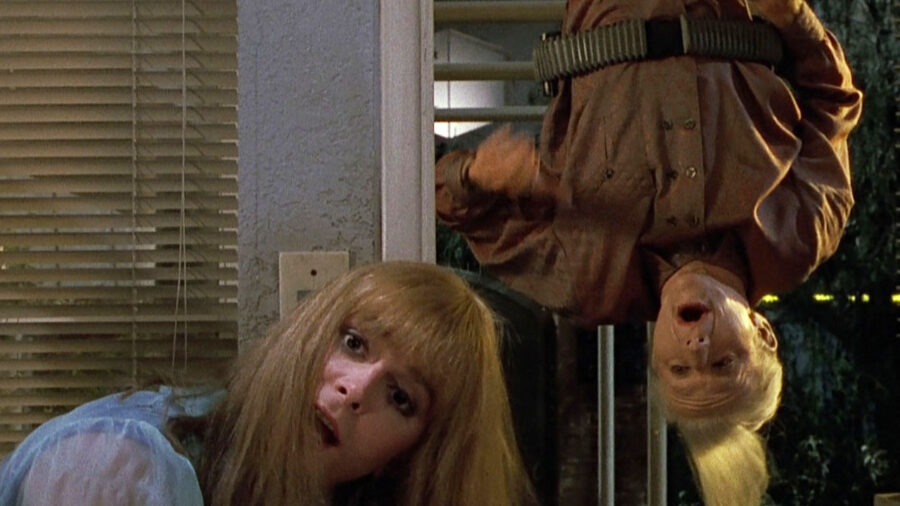
While they were still shooting footage with Eric Stoltz, Glover raised some qualms about what he felt were the film’s very Reagan-esque endings: “I had a conversation with Robert Zemeckis about it, and I said, ‘I think if the characters have money [in the updated timeline at the end of the film] if our characters are rich, it’s a bad message. That reward should not be in there.'”
Zemeckis did not take kindly to being questioned and, after Stoltz was replaced by Michael J Fox, Glover says he felt afraid for his own job and followed Zemeckis’s instructions to the word. Zemeckis held a grudge, though, which Glover says was apparent come negotiation time for the sequel.
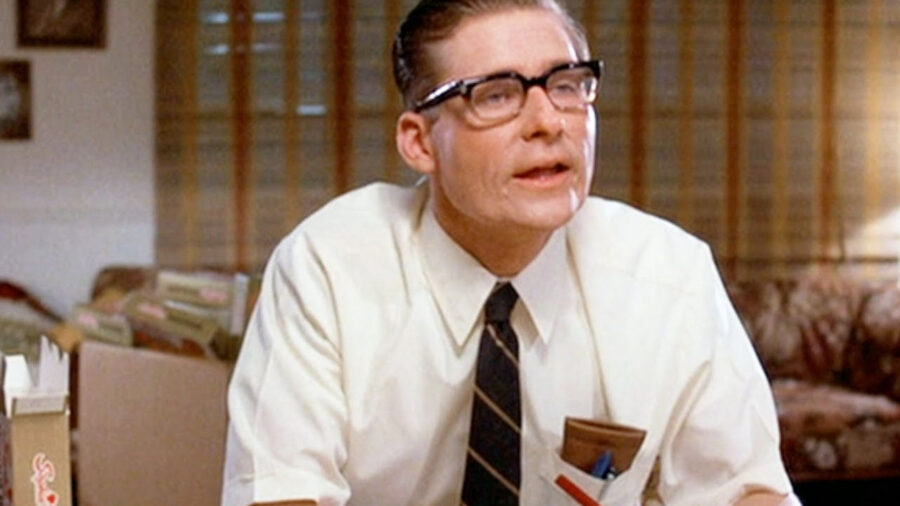
Glover says the “punishment” Zemeckis and Gale tried to lob on him for the sequel came on two fronts: monetary and physical. First, there was the business of George McFly’s inversion back therapy, which Glover claims was written into the script to either make him as uncomfortable as possible during shooting if he signed on or make it more difficult for viewers to tell it wasn’t actually Glover if he didn’t.
Then there was the fact that he claims he was being offered far less money than his co-stars for the film: “They offered me $150,000 to be in—it was a long screenplay. Like, a 200-something-page screenplay. I could tell they would split it into two movies. But Lea Thompson was making something like $650,000, and Tom Wilson was making something like $325,000 or $350,000, so it was less than half of what my fellow actors were making, coming back for similar-sized roles. And my agents knew it wasn’t fair. It wasn’t like I was saying I needed to make more money. I just basically, at that point in the negotiation, I just wanted to be fairly compensated.”
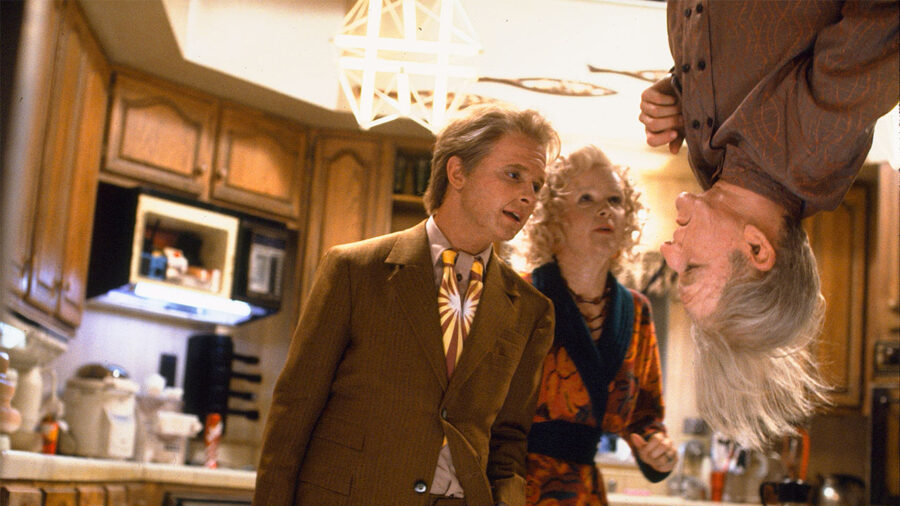
Later, Gale would try to tell Glover that they had already offered to pay Michael J Fox and the others more money than they ought to have, and that was the reason for the low-ball offer. But then they dropped the offer even lower, and Glover decided not to bother with the film at all.
Gale would continue to perpetuate the notion that Glover had actually pushed for the same salary as Michael J Fox (and, according to things Glover heard from others who were on-set, used his name in nasty ways during filming), which is why Glover finally decided to break his silence.
A major lawsuit and 25+ years of badmouthing over the (possibly) impertinent questions of a 20-year-old, idealistic actor? Stranger things have happened in Hollywood.












